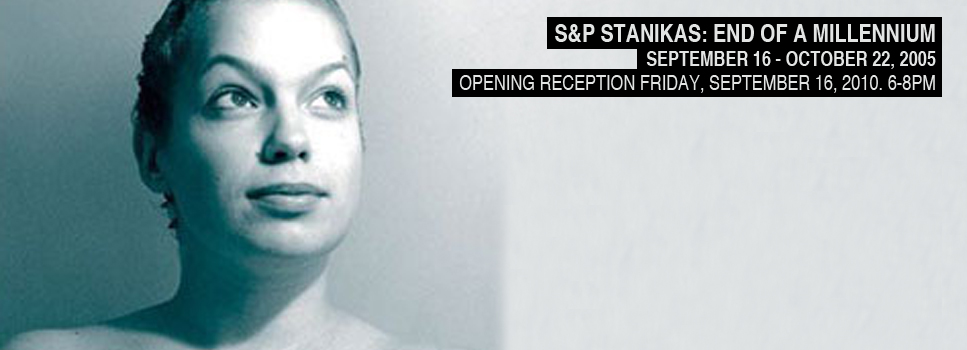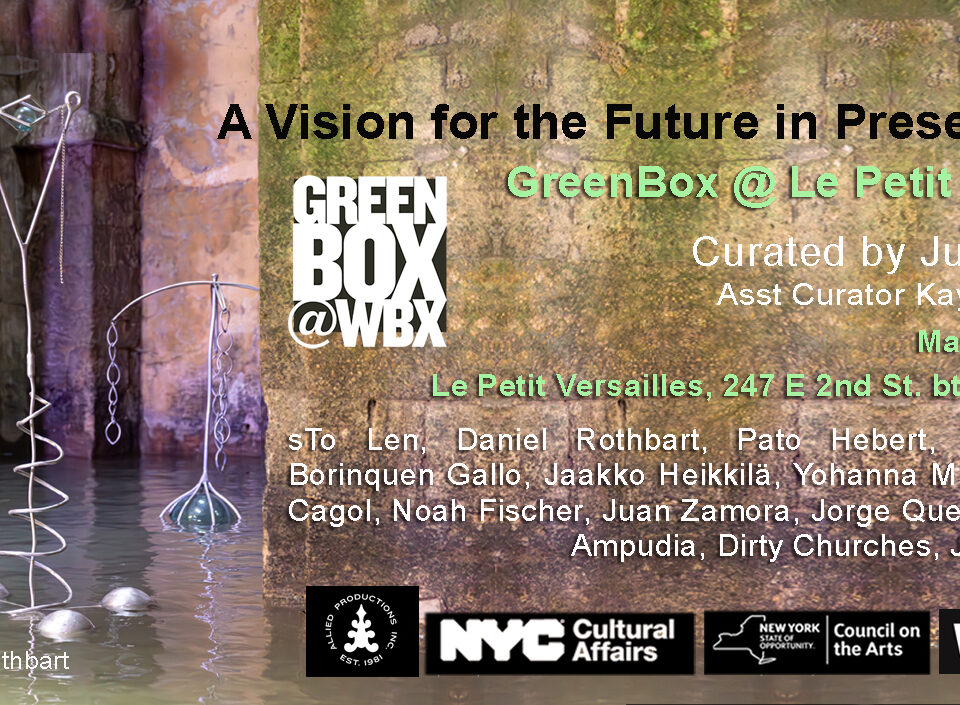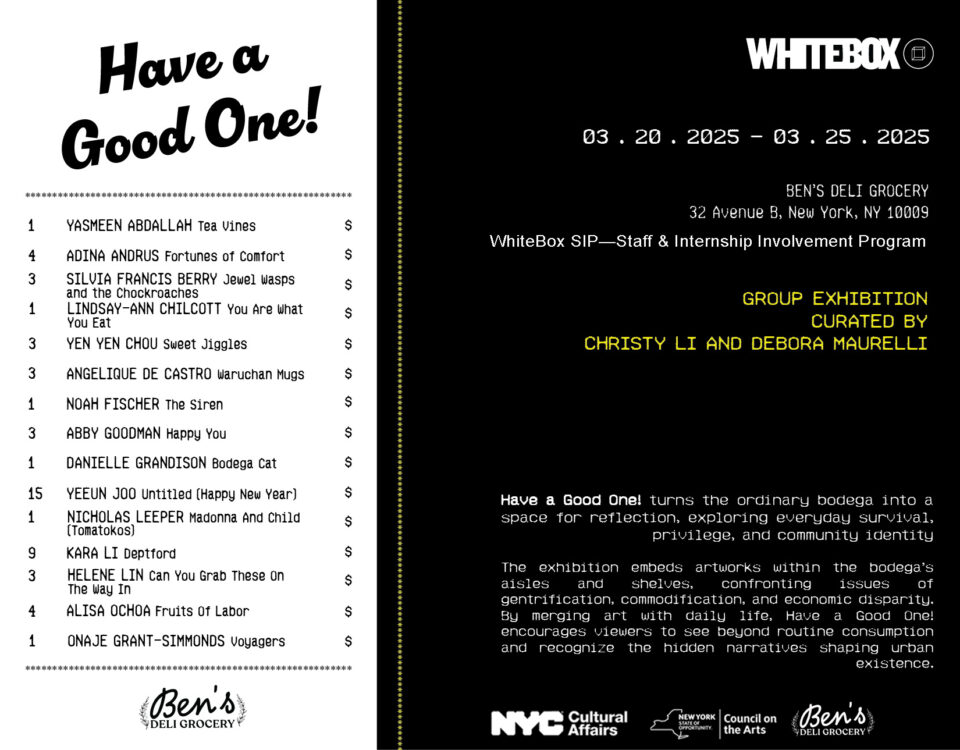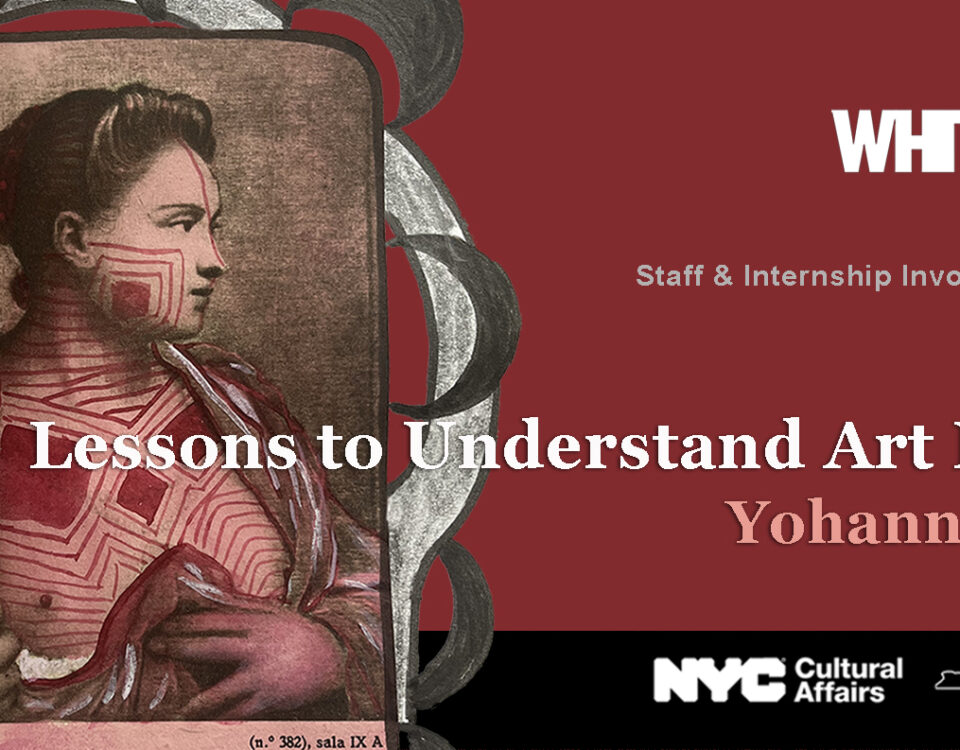ANOTHER EXPO
August 15, 2005White Noise
November 2, 2005S&P STANIKAS: END OF A MILLENNIUM SEPTEMBER 16 – OCTOBER 22, 2005 OPENING RECEPTION FRIDAY, SEPTEMBER 16, 2005. 6-8PM
White Box is pleased to present the first New York solo exhibition of S&P Stanikas. The debut is the last exhibition of a trilogy that began with World War at the Venice Biennale (2003) followed by Inferno (2004) in Paris. At White Box the prominent Lithuanian artists, who currently live and work in Paris, will exhibit a complex and wide range body of work in diverse media under the title of End of a Millennium. The works presented are a visual inquiry into the myriad fields of human existence that put timeless subjects such as beauty, ethics, social relationships, death, faith and the making of history and its narration to the test.
The question that the artists pose is as simple as it sounds: knowing that we are destined to have, as Edgar Allan Poe said, “our meeting with the worm,” why do we invent systems and engage in relations that are absolutely futile, destructive and ultimately self-consuming and suicidal?
The White Box exhibition does not seek to answer these queries as it is more concerned to bring them to light via the third leg of the Trilogy . consisting of photographs, drawings, sculpture and video. The exhibition addresses the human condition; and the Stanikas remain steadfast in their search for it’s understanding, one that is anchored in their artistic intelligence as well as a masterful knowledge of the mediums they use and deftly execute.
The installation features sculptures in various sizes, with some of monumental proportions that are formally reminiscent of socialist realist aesthetics yet adamantly remaining within contemporary discourse and debates about figuration today. Portraits of recumbent figures feign academicism, while critiquing the mechanisms that foster such styles and simultaneously infusing them with irony, poetics, and aesthetic verve. Ranging from full-length sculptures to busts, made out of terracotta and polished to such a degree that they create a faux patina that simulates bronze. A very pointedly collection of large format photographs reminds us that in not such a distant past, Vilnius, the capital of Lithuania where they come from was in the Soviet Union.
White Box’s annual exhibition program is supported, in part, by public funds from the New York City Department of Cultural Affairs, and the Lower Manhattan Cultural Council.
White Box is a 501c non-profit organization and all donations are tax-deductible to the full extent of the law. For more information about the exhibition, please contact Yasha Wallin at 212-714-2347 or yasha@whiteboxny.org




